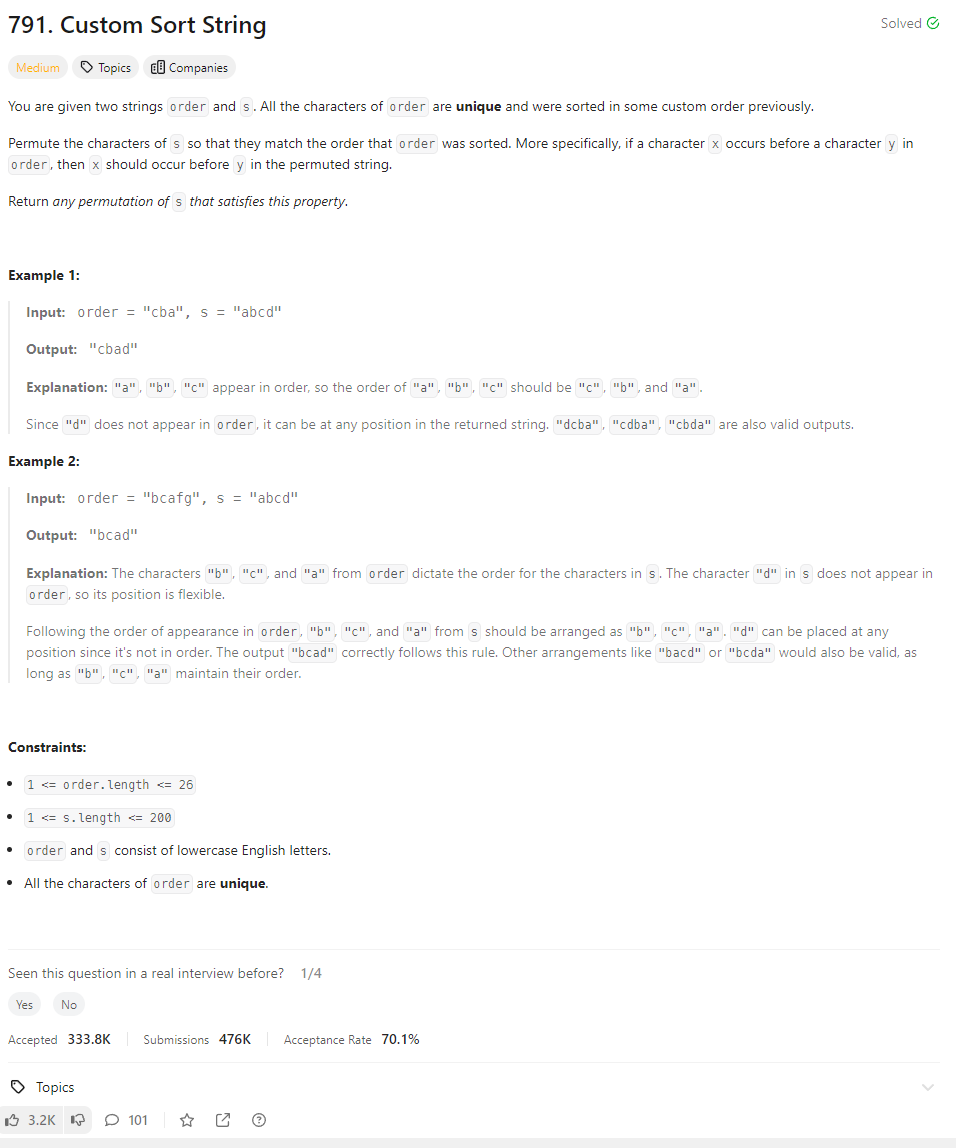Problem of The Day: Custom Sort String
Problem Statement
Intuition
Use one hash map to track the frequency of characters of string s occurs in order and a list for the rest. Then, iterate through the input order again to construct the final result using hash map and appends the out_order list into the result string.
Approach
I approach the problem by first counting the occurrences of each character in the input string s that is also present in the given order. I use a dictionary (in_order) for this purpose. Additionally, I keep track of characters in s that are not in the order (out_order). Then, I iterate through the given order and append the characters, repeated based on their count in in_order, to the result list (res). Finally, I append the characters in out_order to the result. The final sorted string is obtained by joining the elements of the result list.
Complexity
-
Time complexity: O(n + m), where n is the length of the input string
sand m is the length of the given order. The algorithm iterates through the input string and the order separately. -
Space complexity: O(n), as the space required for the dictionary
in_orderand the listout_orderis proportional to the length of the input strings.
Code
class Solution:
def customSortString(self, order: str, s: str) -> str:
res = []
in_order = defaultdict(int)
out_order = []
for c in s:
if c in order:
in_order[c] += 1
else:
out_order.append(c)
for c in order:
if c in in_order:
res.append(c * in_order[c])
res.extend(out_order)
return ''.join(res)
Custom Comparator Approach
class Solution:
def customSortString(self, order: str, s: str) -> str:
res = sorted(list(s), key = lambda x: order.index(x) if x in order else float('inf'))
return ''.join(res)
